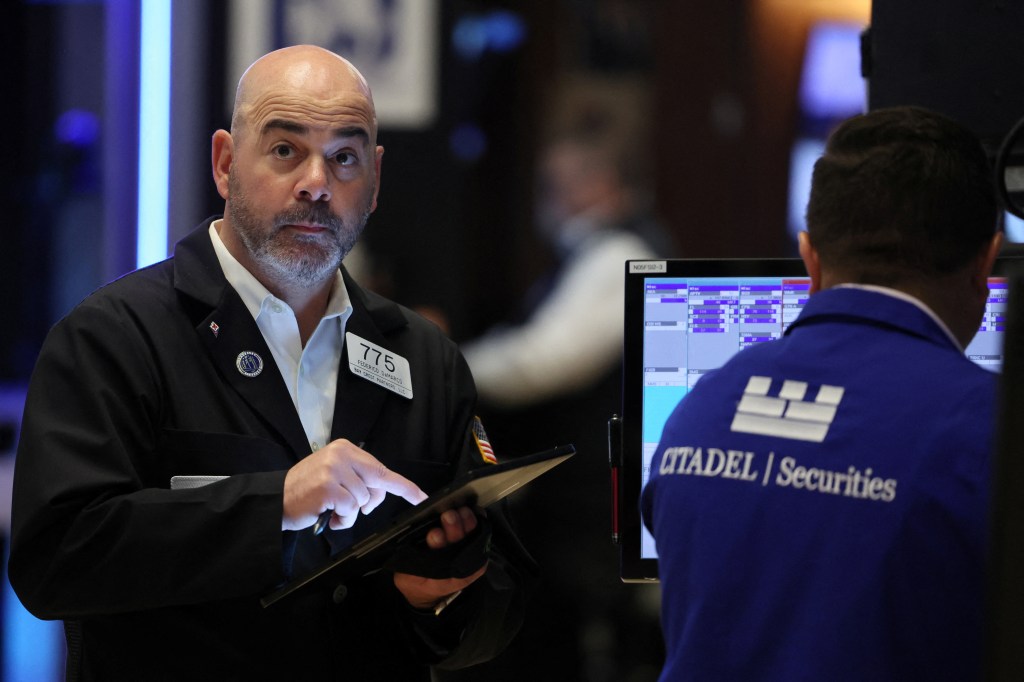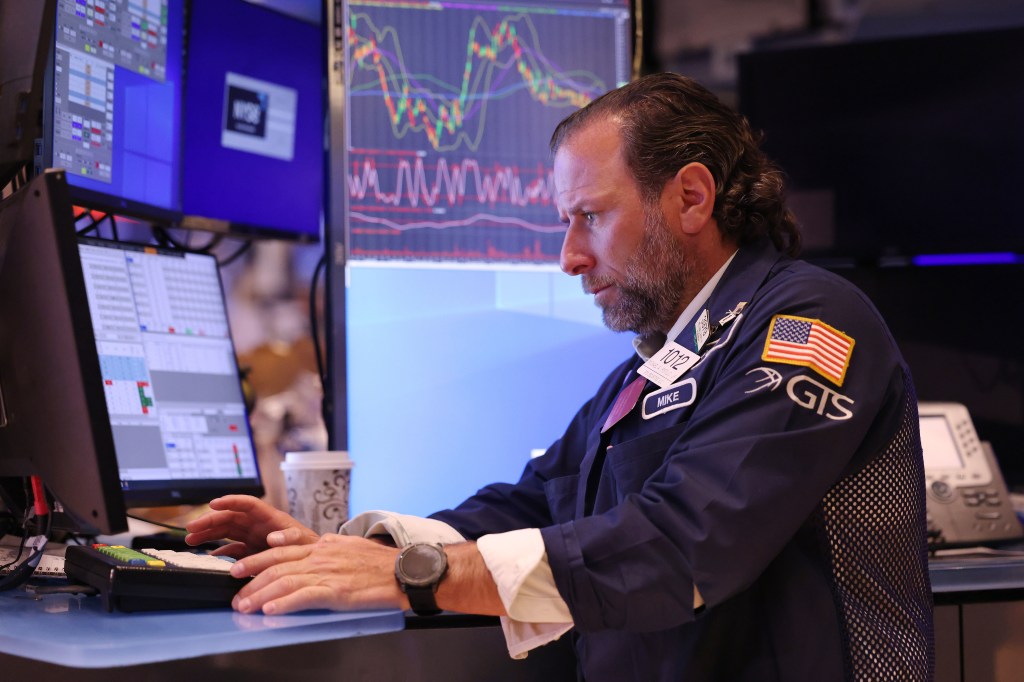Wall Street’s main indexes fell on Tuesday with caution prevailing ahead of the Federal Reserve’s interest-rate decision and as stronger-than-expected labor costs hinted at persistent inflation.
The Dow Jones Industrial Average plunged 428 points, or 1.1%, to 37,597, the S&P 500 slipped 1%, and the Nasdaq was down 1.2%. All three stock indexes are poised to record their first monthly loss in six.
US labor costs increased in the first quarter amid a rise in wages and benefits, confirming the surge in inflation early in the year that will likely delay a much-anticipated interest rate cut later in 2024.

The data comes ahead of the Federal Reserve Open Market Committee’s (FOMC) two-day meeting during the day, with the interest rate verdict and Chair Jerome Powell’s remarks at the end of the event in focus.
“The real problem for the Fed is that it could take some time for changes in labor costs to impact consumer pricing and markets are getting increasingly frustrated with the Fed’s decision-making process,” said Jeffrey Roach, chief economist for LPL Financial.
Money markets are largely expecting the central bank to stand pat on interest rates on Wednesday, while pricing in just about 31 basis points (bps) of rate cuts this year, down from about 150 bps estimated at the start of 2024, according to LSEG data.
On the earnings front, GE HealthCare lost 11.2% after the medical equipment firm missed estimates for first-quarter revenue, while US industrial conglomerate 3M gained 4.6% after posting a better-than-expected quarterly profit.
Eli Lilly jumped 5% after the drugmaker raised its full-year profit forecast.

PayPal rose 3.1% after the payments giant raised its full-year adjusted profit forecast.
Of the 265 companies in the S&P 500 that have reported earnings to date for the first quarter, 79.2% have beat analyst estimates, compared with the long-term average of 67%, according to LSEG I/B/E/S data.
US equities have had a rough April as elevated inflation numbers sharply pulled back bets on interest rate cuts, while heightened tensions in the Middle East and earnings updates also added to the volatility.
Meanwhile, US consumer confidence deteriorated in April, falling to its lowest level in more than 1-1/2 years.
Tesla dipped 5.2% following a 15% surge in the previous session after a report that CEO Elon Musk had dismissed two senior executives and plans to lay off hundreds more employees.














